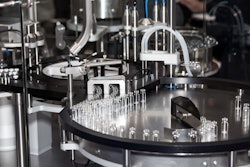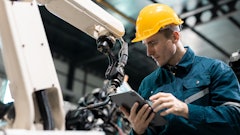
SYSPRO releases consolidated results from several surveys that show manufacturers are eager to adopt new technologies such as AI, automation and IIOT.
“Manufacturers clearly see smart technology as the key to overcoming workforce shortages and supply chain disruptions. However, adoption is still challenging,” says Kelly Kucera, senior vice president of global marketing at SYSPRO Americas. “SYSPRO’s ERP solutions are designed to simplify this transition, providing the flexibility and integration needed for real-world manufacturing environments.”
Key Takeaways:
- A significant number of manufacturers are overcoming barriers of high upfront costs and internal resistance to change, to adopt technologies such as automation and robotics (37%), AI and machine learning (19%) and industrial internet of things (IIOT) (18%) technologies. Looking ahead to 2025, AI and automation (40%) lead in their digital transformation priorities, followed by enhancing digital integration and real-time insights (29%) and managing costs while adopting new technologies (24%).
- While U.S. manufacturers are beginning to adopt smart manufacturing technologies, they have ground to make up with their Chinese competitors, who lead the way in adoption. Just under half (45%) of Chinese manufacturers have already adopted these emerging technologies.
- Forty percent of respondents said that implementing AI and automation was their No. 1 priority when it comes to digital transformation, and 80% are either devoting resources to AI implementation or are making near-term plans to do so. 12% have already deployed AI (differentiated from machine learning) or are actively in the process of doing so, while almost six in 10 (57%) are actively researching use cases, and another 11% plan to deploy AI within the next 12 months. SYSPRO’s findings mirror those of a Manufacturing Leadership Council survey, which found that 78% of AI initiatives are part of the 78% of manufacturers’ digital transformation strategies.
- Almost one in three (30%) say they have difficulty integrating new technology, while 15% say outdated systems are creating inefficiencies, and another 15% suffer from limited scalability to meet future needs.
- Another significant challenge manufacturing leaders face is the inability to obtain real-time data so they can make quick, data-driven decisions (40%). Analytics can provide a solution to this problem, but only 23% have made implementing analytics a key technology priority for the coming year. Additionally, almost one-quarter (24%) are not using any kind of analytics at all.
- When manufacturers were asked about the biggest challenges they expect to face in 2025, the number 1 response was their ability to attract and retain a skilled workforce (30%), followed by supply chain disruptions (23%) and cybersecurity (12%). These findings concur with a survey from the National Association of Manufacturers that found 71% of manufacturing companies struggled to attract and retain employees.



















